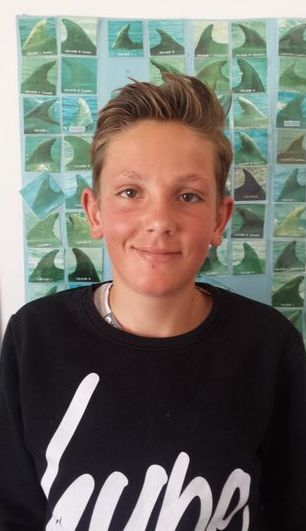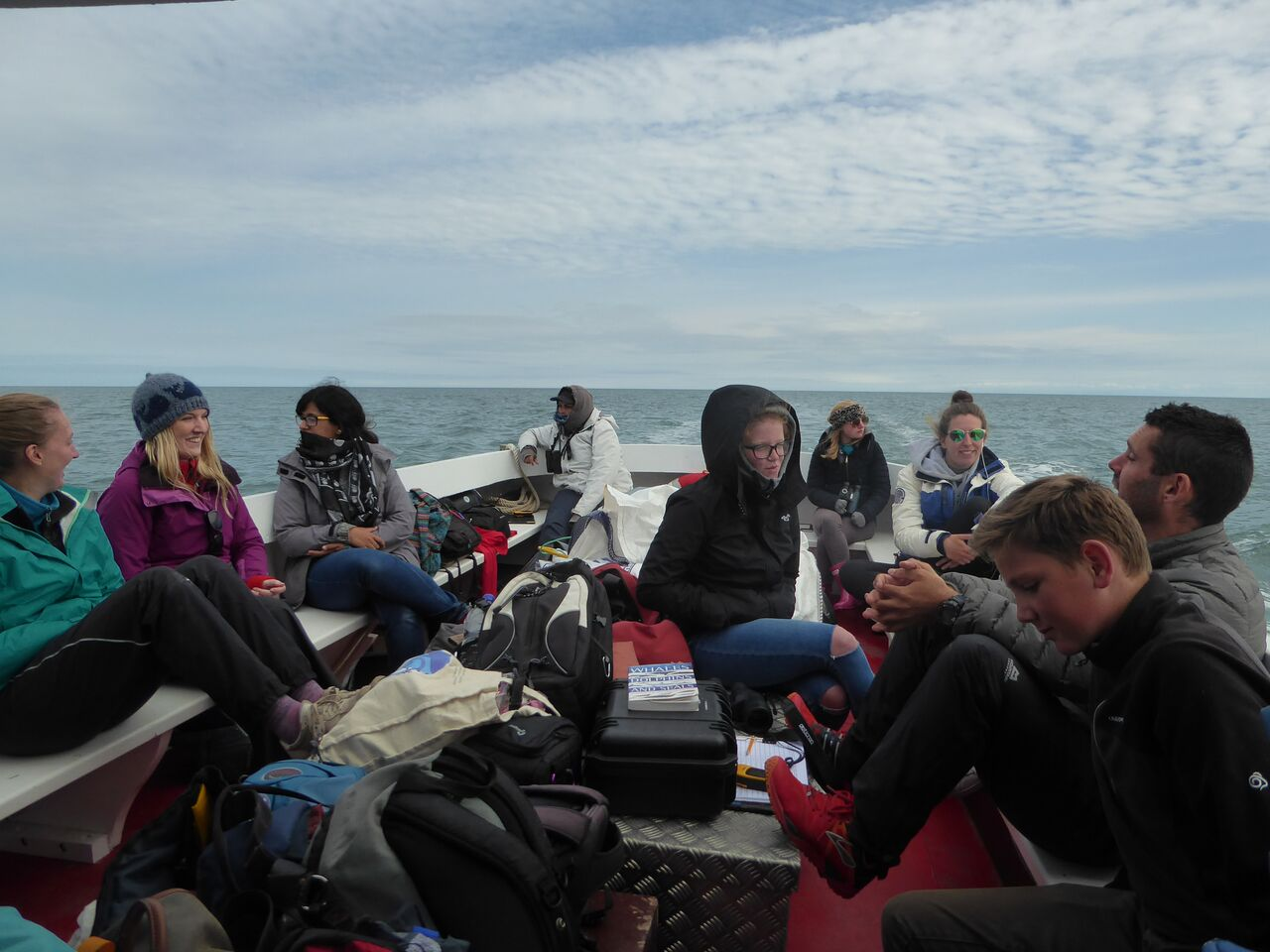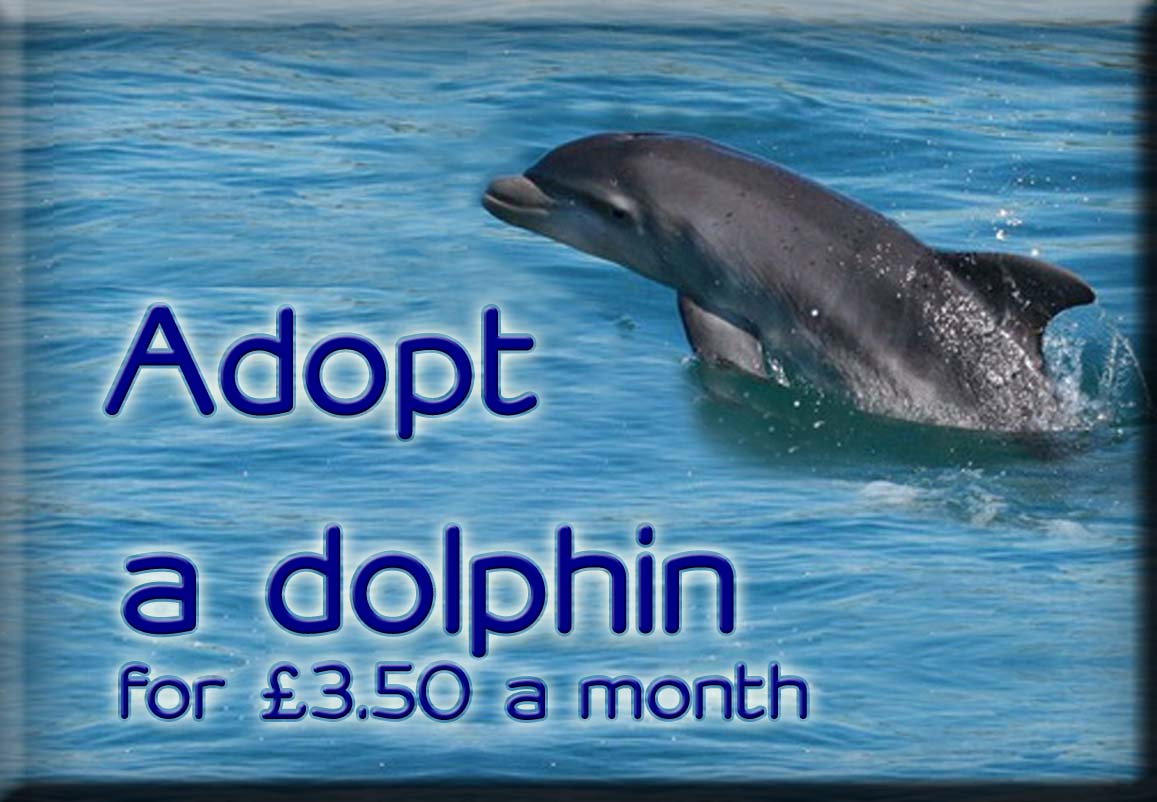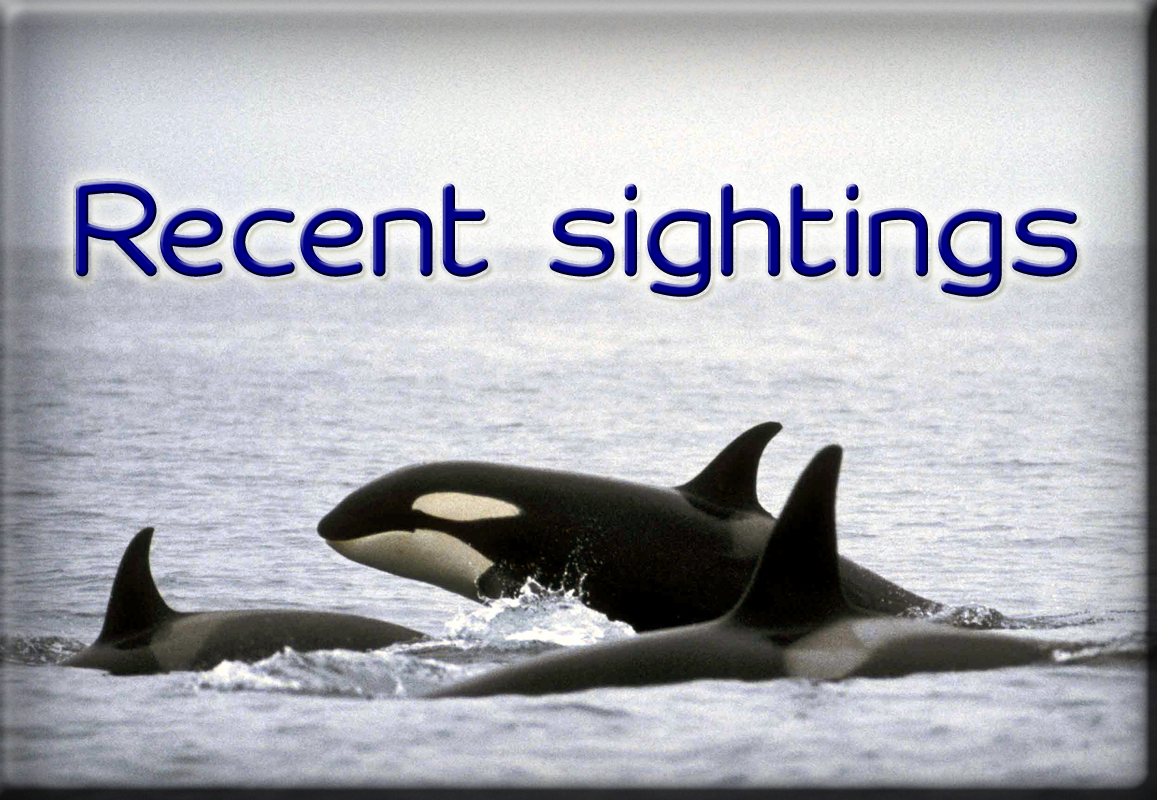Every year the Sea Watch Foundation takes on a number of interns to assist the work carried out by the Cardigan Bay Monitoring Project, allowing students pursuing a career in marine biology the opportunity to gain field experience in marine mammal science over a period of several months. Marine biology is a competitive field and gaining research experience through interning and volunteering can be invaluable. While most of our interns are university level students, it’s always a good idea to start gaining experience as soon as you can and this year Sea Watch has opened its doors to allow young, aspiring marine biologists to join the Cardigan Bay team for one or two weeks at a time to get their first taste for what lies ahead of them. Recently, the New Quay team was joined by two GCSE students, Katie and Aidan, who assisted the team in all aspects of field and office work, ranging from creating materials for public awareness to assisting in a full day boat survey! Read on to find out more about their experience!
Aidan Broadbent, 15, Lady Manners School.
When I was accepted by the Sea Watch Foundation for work experience I was very happy with the opportunity I had been given! Coming from Derbyshire, a landlocked county, people thought it strange that I was going to the Welsh coast for my work experience, but for me it was an opportunity not to be missed.
The quaint little town of New Quay, with streets lined with colourful, painted houses, and the pier looking out onto the coastline, was certainly a very beautiful place of Britain, and definitely not a half bad place for work experience.
On my first day I was excited but a little nervous, which I had no reason to be because everyone was extremely friendly and kind. My first task for the day was a land watch, which involves watching out for dolphins from the pier whilst also taking account of boats and how the dolphins reacted to them, all of this is written on a sheets which is later recorded on the online database.
Back at the office I did a dolphin identification task which involved looking at unknown dolphin fins and comparing the nicks and scratches on them with named ones from the database and then organising them as such. A great first day!
However, Wednesday was a very different day altogether. I got up early and met everyone on the pier. Boxes with cameras and hydrophones were ready to be loaded on to the ‘Dunbar castle II’ the Sea Watch Foundation research boat for a full day boat survey. On board there was a rota with jobs for certain people at certain times, this could include, being on watch for dolphins or taking effort (data sheet), taking pictures for photo identification, or operating hydrophones to listen for clicks and whistles of dolphins. To collect accurate data the boat must follow transect lines, pre-marked on a map, this is so estimating population has increased accuracy. The trip was both inspiring and interesting however I cannot say I wasn’t tired by the end of it! I would definitely encourage people who also may get this opportunity to take it.
The days after that included tasks like putting together educational posters, or checking the website for errors, not forgetting the occasional land watch, these jobs gave me a greater feeling for what this area of work is like.
All of the amazing experiences and opportunities are down to the great people at Sea Watch, so thanks to Katrin, Georgina, Kathy, Sonia and all the interns that made it such a memorable work experience. To anyone interested in this area of work I would definitely recommend Sea Watch for your work experience, and I hope it inspires you like it did for me.
Katie Fitzwater, 15, Coopers’ Company and Coburn School
I have been working with the Sea Watch Foundation for two weeks and have gained many skills in both the office and on the boats. Two hours every day are spent doing a land watch, the rest of the day I am in the office learning the theory of the job and how to use the equipment and cameras. I hope to pursue these abilities in the future.
Throughout these two weeks I have learnt a lot, for example:
- I have learnt how to process the sightings that are uploaded by the public onto the Sea Watch website.
- I have learnt how to do a land watch and complete the data sheet.
- I have learnt how to identify dolphins from photographs we have taken (Photo Identification)
- I have learnt how to use a hydrophone and detect when there is a noise from a marine mammal.
- I have learnt how to use a Digiscope and camera, and how to zoom in and out and focus.
During my two weeks of work experience at the Sea Watch Foundation, I have also gained life skills; I spent 4 hours of the day on the New Quay Harbour pier talking to the public, making them aware of the 200 residential bottlenose dolphins that are in the bay. I spoke to them about what exactly the Sea Watch Foundation do and why it is important to conserve these marine mammals. Although this did not start out as a great day in the heavy rain, cold winds and no dolphins in sight, it eventually brightened up bringing more tourists to the pier to look for dolphins, which had come very close to the pier when the rain stopped. From this day I gained more confidence by talking to the public about what I had learned from my work experience.
I would like to thank everyone at Sea Watch Foundation for teaching me about marine wildlife and about what they do. I have enjoyed my work experience with them and I hope to pursue everything I have learnt to my future job.
Author: Aiden Broadbent and Katie Fitswater (Sea Watch work experience students 2016)




























